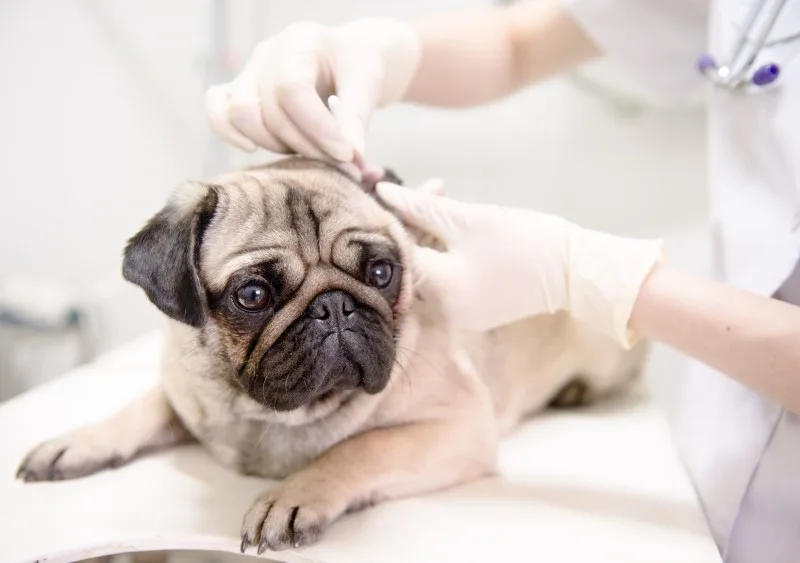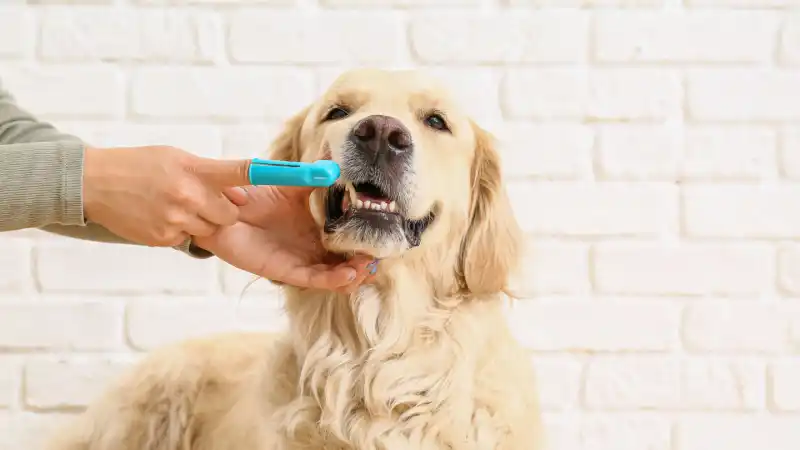Visiting the Vet with an Anxious Pet
Does your dog get anxious about trips to the vet's office? Here are tips and tricks to manage your pet's anxiety and make them more comfortable with routine exams.

By adolescence, most dogs have made their fair share of trips to the vet’s office. Routine exams, vaccinations, and procedures like spaying, neutering, and microchipping have given them the chance to soak in the sights, sounds, and smells associated with the experience. However, just because a dog is familiar with something doesn’t mean they like or even tolerate it. For some pets, the veterinarian, their office, their staff, and anything even faintly associated with them can mean a lifetime of nervousness.
Among the many behavioral changes a dog’s adolescence can bring is a new attitude toward veterinary care. Formerly sedate dogs may suddenly display signs of anxiety and even anger that can make trips to the vet a hassle.
Manage Your Own Anxiety
Dogs are remarkably sensitive and perceptive creatures. They pick up on how their caretakers are feeling and often start to mirror the behavior and emotions of those around them. If you’re anxious about heading to the vet, it’s likely that your dog can tell. Try to address your own feelings of anxiety using whatever methods work best. Sometimes, it’s as simple as taking a few slow, deep breaths.
Make Casual Visits to the Vet
Can you really blame a dog for feeling anxious about the vet? Most of them associate their veterinarian with little more than exams and vaccinations. Those experiences are generally unpleasant at worst and just plain boring at best. Making casual trips to the vet may help dogs start to develop more positive associations. The same principle often applies when pet owners attempt to address anxiety related to riding in the car. Rather than reserving the car for medical emergencies, owners can make the car a more comfortable space by taking it out just for fun.
“Practice” at Home
Among the many potential stressors of veterinary care are the experience of being poked, prodded, and handled. Proactive pet owners can teach their dogs what to expect by “practicing” veterinary care at home. Early and often, owners should handle dogs to familiarize them with new sensations. Your dog may never love a sensation like having their teeth brushed or their ears examined, but at-home handling from a familiar person can teach them to accept both.
Exercise
Reserves of excess energy can make for an agitated puppy when it comes time to visit the veterinarian. If possible, try to schedule long walks or games of fetch just before you head out for an appointment. A dog who's tired out is less likely to act up than one who's got energy to burn.
If All Else Fails . . .
If serious anxiety thwarts your every effort and visits to the vet remain a serious ordeal, talk to your veterinarian about taking more serious measures. These could include anti-anxiety medications, or even a new arrangement in which veterinary care is administered at home. Pet insurance enrollees may even be able to save on treating the underlying cause of behavioral concerns like anxiety.
What Not to Do
However frustrating canine anxiety can be, it’s important that owners resist the urge to punish their dogs. The negative reinforcement from harsh discipline may have the unintended effect of making dogs even more anxious. Focus on rewarding good behavior rather than punishing unwanted anxious habits.
Save on Trips to the Vet
Visits to the vet, even the expected ones, can get pricy. Appointments with specialists and trips to the emergency room are even more so, threatening to break many dog owners’ pet care budgets. AKC Pet Insurance customers who select optional Exam coverage can save on unexpected trips to the vet throughout their dogs’ lives.



